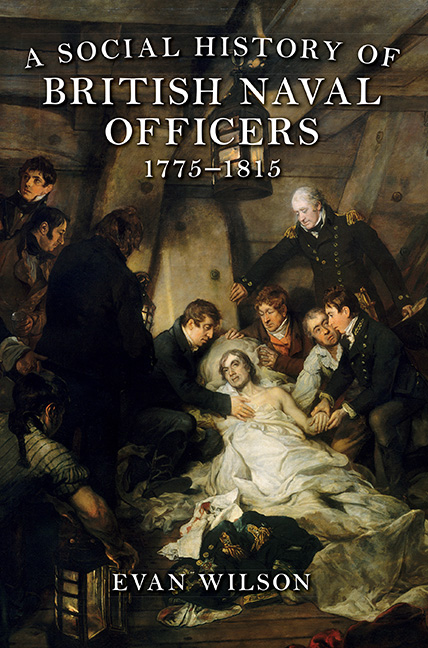Book contents
- Frontmatter
- Dedication
- Contents
- List of Illustrations
- Acknowledgements
- Abbreviations and Conventions
- Introduction
- 1 The Education of Young Gentlemen
- 2 Commissioned Officers’ Careers
- 3 Warrant Officers’ Careers
- 4 The Wardroom as a Social Space
- 5 Patronage and Promotion Prospects
- 6 Pay and Prize Money
- 7 Domestic and International Comparisons
- 8 Naval Officers’ Social Status
- Conclusion
- Appendix
- Bibliography
- Index
4 - The Wardroom as a Social Space
Published online by Cambridge University Press: 20 April 2017
- Frontmatter
- Dedication
- Contents
- List of Illustrations
- Acknowledgements
- Abbreviations and Conventions
- Introduction
- 1 The Education of Young Gentlemen
- 2 Commissioned Officers’ Careers
- 3 Warrant Officers’ Careers
- 4 The Wardroom as a Social Space
- 5 Patronage and Promotion Prospects
- 6 Pay and Prize Money
- 7 Domestic and International Comparisons
- 8 Naval Officers’ Social Status
- Conclusion
- Appendix
- Bibliography
- Index
Summary
On 12 June 1779, thirteen-year-old Prince William Henry joined the navy as a midshipman. George III's instructions to him set a high standard for his behaviour: ‘It must never be out of Your thoughts that more Obedience is necessary from You to Your Superiours [sic] in the Navy, more Politeness to Your Equals and more good nature to Your Inferiors, than from those who have not been told that these are essential to a Gentleman.’ The king made it clear that he was joining a profession in which not all of his brother officers would be gentlemen. Presumably the prince would be, at least by birth. Whether he behaved like a gentleman was another matter, however, as the king – who knew his son well – may have realised. Indeed, the young prince comprehensively failed to follow his father's instructions. Not only did he exchange punches with his shipmates, but his admiral had to bail him out of jail after he brawled with soldiers in Gibraltar. He feuded with his tutor and had affairs in multiple ports. He also drank too much and had a dangerous fondness for gambling. In short, the future William IV, despite being told how to behave as a gentleman, rarely did.
As we have traced officers from birth to death, their families – their social backgrounds – have been noticeably absent. This chapter asks how many officers, both commissioned and warrant, were gentlemen by birth, Prince William Henry certainly was. But Captain Thomas Fife and Lieutenant Robert Baley were not: Fife was the son of a woolcomber and Baley's father was a farmer. They were the men the king warned his son about – men who had not been brought up with the essential qualities of gentility. Whether Fife and Baley were perceived as gentlemen by their peers – in other words, whether they were gentlemen by behaviour – is the subject of Chapter 8.
- Type
- Chapter
- Information
- A Social History of British Naval Officers, 1775-1815 , pp. 83 - 104Publisher: Boydell & BrewerPrint publication year: 2017



